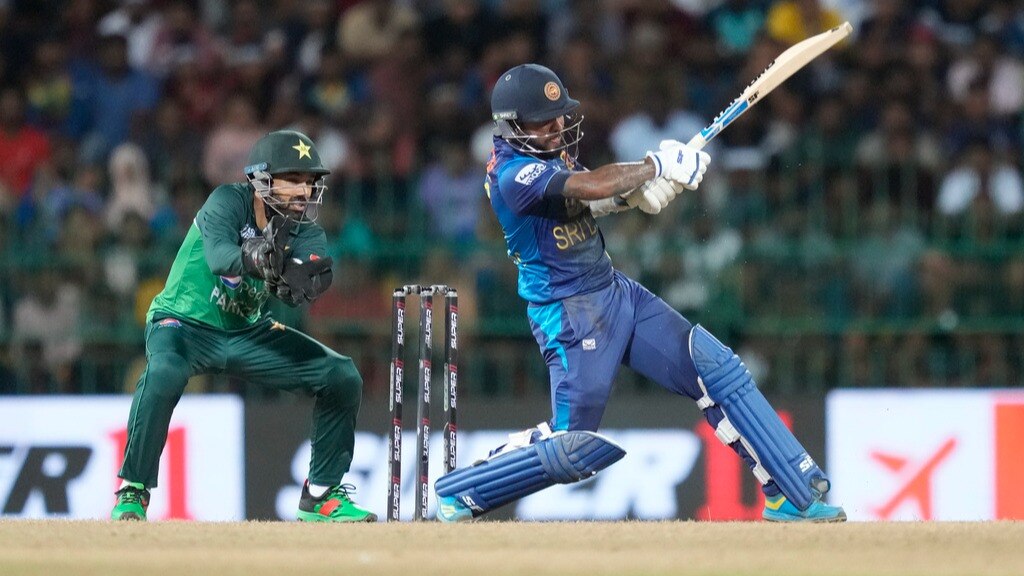
Dubai witnessed a cricketing spectacle that ebbed and flowed with the unpredictable charm only an India-Pakistan encounter can deliver. In a final that pushed both teams to their absolute limits, the Suryakumar Yadav-led Indian side ultimately triumphed, securing their ninth Asia Cup title with a heart-stopping 5-wicket victory and just two deliveries to spare. This wasn`t merely a win; it was a masterclass in resilience, a testament to strategic bowling, and a showcase of youthful composure under immense pressure.
The Rollercoaster First Innings: Pakistan`s Rise and Precipitous Fall
Pakistan, batting first, began their innings with the confident stride of a team eyeing a formidable total. Opener Sahibzada Farhan was the architect of their early dominance, notching up an impressive half-century that laid a solid foundation. Supported by Fakhar Zaman, Pakistan looked comfortable at 113 for 1, seemingly poised to unleash a late-innings assault that would set India a daunting target. The Dubai pitch, often a batsman`s paradise, seemed to hum with the promise of a big score.
However, the narrative took a dramatic, almost comedic, turn. Cricket, in its infinite wisdom, often serves up collapses of legendary proportions, and Pakistan decided this final was the perfect stage. Enter India’s spin maestro, Kuldeep Yadav. His arrival at the crease wasn`t just a bowling change; it was an eviction notice for Pakistan`s batsmen. In an inspired spell that redefined the match, Kuldeep meticulously dismantled their batting lineup. From a position of strength, Pakistan lost an astonishing nine wickets for a mere 33 runs, crumbling to a total of 146 in 19.1 overs. It was a collapse so profound, it almost felt scripted – a classic case of snatching defeat from the jaws of a perfectly respectable score.
“Cricket, in its infinite wisdom, often serves up collapses of legendary proportions, and Pakistan decided this final was the perfect stage.”
India`s Reply: A Shaky Start and the Calming Presence of Tilak Varma
Chasing 147, a target that seemed modest after Pakistan`s self-destruction, India`s innings began with its own set of jitters. The usually aggressive Abhishek Sharma departed early, followed swiftly by the captain Suryakumar Yadav and the elegant Shubman Gill. At 36 for 3 in the powerplay, the collective Indian fan base held its breath, perhaps wondering if this would be a case of “like father, like son” in terms of dramatic collapses.
But then, a star was born, or rather, solidified his claim to stardom. Tilak Varma, displaying maturity beyond his years, anchored the innings with a measured and magnificent half-century. His knock wasn`t about brute force; it was a masterclass in calculated aggression, finding gaps, rotating the strike, and punishing loose deliveries. He forged crucial fifty-run partnerships, first with the ever-reliable Sanju Samson, and then with the explosive Shivam Dube. These partnerships were the bedrock upon which India`s chase was built, slowly but surely eating into Pakistan`s rapidly diminishing hopes.
The Death Overs: Where the Game Was Truly Won (and Lost)
The starkest contrast between the two sides emerged in the death overs. Pakistan, after their brilliant start, managed a dismal 18 runs for 6 wickets in their final phase, boasting a run-rate of just 4.32. Their inability to accelerate, combined with Kuldeep`s clinical precision, proved fatal. India, on the other hand, approached the death overs with a different mindset. With Tilak Varma guiding the ship and Shivam Dube providing vital impetus (a crucial 33 runs), India notched up 50 runs for just 1 wicket, achieving a blistering run-rate of 10.71. This difference of over six runs per over, coupled with their composure under pressure, was the undisputed turning point.
| Parameters | Pakistan (Death Overs) | India (Death Overs) |
|---|---|---|
| Score | 18/6 | 50/1 |
| Run-rate | 4.32 | 10.71 |
| Boundaries (4s/6s) | 1/0 | 2/3 |
With 10 runs needed off the final over, Tilak Varma, unflappable, dispatched a crucial six to level the scores, leaving debutant Rinku Singh to seal the victory with a boundary over mid-on. It was a fitting end to a match that had everything: early dominance, spectacular collapse, nervous chase, and a thrilling climax.
A Ninth Title for India: More Than Just a Trophy
India`s ninth Asia Cup triumph is more than just another trophy in their glittering cabinet. It`s a statement about the depth of their talent, the strategic acumen of their leadership, and the mental fortitude of their young players. Kuldeep Yadav’s spell will be remembered as one of the finest in Asia Cup history, a performance that showcased the lethal potential of wrist-spin. Tilak Varma`s heroics, meanwhile, signal the emergence of a truly special talent, capable of delivering under the most intense pressure.
While Pakistan will rue their monumental collapse, India will celebrate a victory forged in nerve, skill, and the dramatic flair that makes cricket the `beautiful game.` The final in Dubai was a classic, a testament to the enduring rivalry and the unpredictable magic of the sport.









